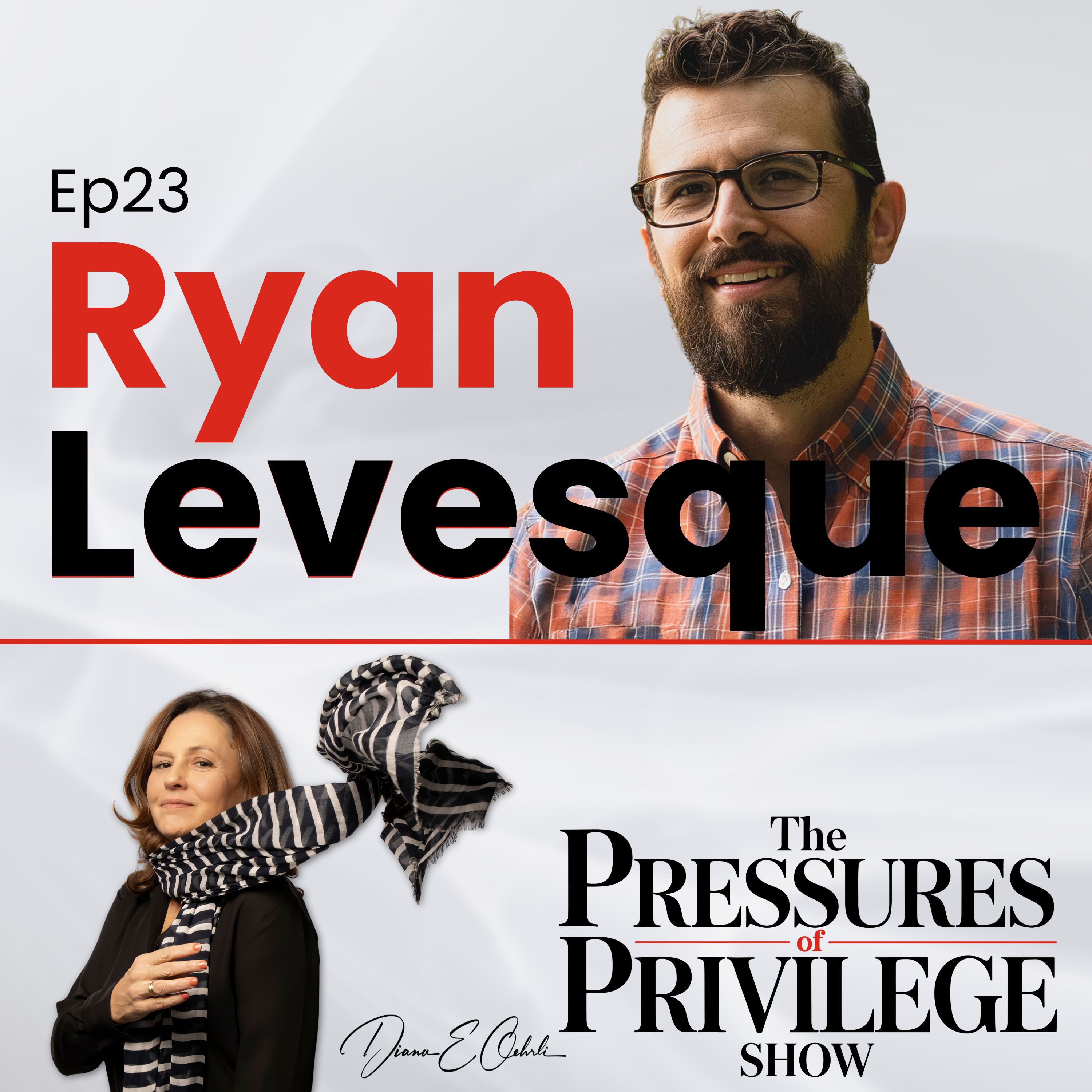Episode Transcript
[00:00:00] Having money can make you a target for manipulation and control by others.
[00:00:06] Most people are genuine and kind regardless of their financial situation.
[00:00:11] The goal isn't to become suspicious of everyone, but to recognize specific warning patterns that research has identified.
[00:00:19] You don't have to be rich to become a target. Sometimes all it takes is having more money than someone else in your life.
[00:00:26] When there's a financial imbalance in any relationship, it can create problems.
[00:00:31] As a single mother of two, I learned this lesson the hard way when I was starting to date someone whom I was attracted to for his athleticism and charm.
[00:00:40] The wealth difference wasn't huge, but it was enough to create difficult dynamics.
[00:00:46] Recent research shows a troubling connection between wealth and narcissistic behavior, but it's not just about the super rich.
[00:00:55] Studies reveal that people with narcissistic tendencies are drawn to partners who enhance their status.
[00:01:02] Since wealth is one of the most visible signals of status, even small financial imbalances can make you a target.
[00:01:10] Other studies show narcissists view money itself as a source of power and prestige, and higher social class is linked with greater narcissistic entitlement.
[00:01:21] Looking back at a Costa Rican trip and without diagnosing the guy, I now recognize patterns that match what researchers call narcissistic behaviors.
[00:01:31] Understanding these patterns has helped me spot red flags when there's any financial imbalance. Here's what I've learned about navigating relationships when you have more money and how to protect yourself.
[00:01:45] The Guilt Trip One of the most common ways people try to control those with more money is through guilt.
[00:01:51] They make comments like, must be nice to have all that option.
[00:01:56] You're spending too much.
[00:01:58] Unlike you, this is a once in a lifetime trip for me.
[00:02:02] What's really happening?
[00:02:04] They're trying to make you feel bad about having more resources so you'll change your choices to suit their needs.
[00:02:12] On that trip, I had booked a separate hotel to maintain independence. But my new boyfriend, whose charm was starting to disappear, criticized my spending. Instead of feeling guilty, I got annoyed, which was the right reaction. My therapist had warned me, don't make travel plans that depend solely on him. Maintain your independence.
[00:02:33] The lesson? Having more money doesn't mean you owe anyone else more control over how you spend it. Don't let others guilt you into decisions that compromise your comfort or safety.
[00:02:45] The Jealousy Factor Financial imbalances often come with other differences. Education, connections, confidence in social situations. This can trigger jealousy in people who feel left behind or less capable.
[00:02:59] Common signs include getting upset when you network or make friends.
[00:03:03] Accusing you of showing off when you're just being yourself, trying to isolate you from activities you enjoy, making everything about the money difference between you.
[00:03:14] During that trip, the guy accused me of flirting with every man when I was simply socializing, something that came to me naturally. Due to my journalism background, I was used to interviewing and talking to strangers.
[00:03:29] The real issue wasn't flirting. It was that my confidence and social ease made someone else feel insecure about our financial imbalance.
[00:03:38] The lesson don't dim your light to make others comfortable with having less. The right people will celebrate your strengths, not resent them.
[00:03:47] The Control Game Research shows that people with narcissistic traits use money and status queues strategically as a weapon, a means of control, and an endless source of entitlement.
[00:03:58] They'll question your spending decisions, try to redirect your plans to suit their preferences, make you feel responsible for their financial limitations.
[00:04:07] Use emotional manipulation to get what they want.
[00:04:11] This happened when the guy wanted to leave the beach resort to tour the country.
[00:04:15] When I said no, my kids were happy and so was I, he brought up money as a weapon. He he wanted to control our itinerary because he felt entitled to maximize his experience even though it would ruin ours. What I now recognize as narcissistic behavior using my financial privilege against me to guilt me into compliance than trying to control our entire trip to meet his needs rather than what was best for my family. The lesson Someone who truly cares about you wants you to be happy, not controlled.
[00:04:48] The Isolation Strategy Perhaps the most dangerous aspect of financial imbalances is how they can be used to manipulate your judgment, especially when it comes to your loved ones. Research on narcissistic traits show that people with these behaviors are skilled at getting others to act against their better instincts. In my case, the guy persuaded me to leave my children unattended at a beach resort, something I never would have done if I'd been thinking clearly and not so blinded by limerence. Now I realize this was my poor judgment, influenced by someone who was being selfish and manipulative. He never would have left his own daughter alone like that, but he had no problem convincing me to leave mine. The result?
[00:05:32] My 11 year old son got stuck on a surfboard in the ocean at sunset with no lifeguards around.
[00:05:39] While the situation ended safely, it taught me a crucial lesson.
[00:05:44] People with narcissistic traits can be skilled at getting you to compromise your standards, especially around your children, and they will isolate you from family, friends, and people who truly care about you.
[00:05:56] I now believe he subconsciously wanted to Separate me from my children.
[00:06:01] The lesson Trust your parenting instincts and if someone is pushing you to make decisions about your children or loved ones that feel wrong, that's a major red flag.
[00:06:12] How to Protect yourself early in relationships Trust is still the foundation of good relationships. These boundaries help you identify the small percentage of people who might exploit your generosity so you can freely trust everyone else.
[00:06:28] 1. Set clear financial boundaries early.
[00:06:32] Be upfront about your financial boundaries in any relationship.
[00:06:35] Don't justify or over explain your spending choices.
[00:06:40] Make it clear that your money decisions are not up for discussion.
[00:06:43] Keep your finances separate until you're certain about someone's character.
[00:06:48] 2.
[00:06:49] Watch for red flags in all relationships. Research on narcissistic traits reveals specific patterns to Watch for Comments about your privilege that make you feel guilty Attempts to control how you spend your time or money Jealousy about your social connections or confidence Pressure to make decisions that go against your instincts Starting relationships by appearing financially independent then gradually becoming entitled to your resources Using your empathy and generosity against you through manipulation as a single parent targeting your protective instincts or trying to undermine your parenting decisions.
[00:07:32] Studies show that people with narcissistic behaviors are often drawn to empathetic, financially stable individuals, especially single parents, because they see them as ideal sources of both emotional and financial supply.
[00:07:47] 3. Maintain your independence in all areas.
[00:07:51] Keep your own living space and transportation.
[00:07:54] Don't make major plans that depend entirely on someone else.
[00:07:58] Have your own money access and financial accounts.
[00:08:01] Trust your gut when something feels wrong.
[00:08:05] Maintain your friendships and social connections for single parents. Never compromise your children's safety for someone else's convenience.
[00:08:14] 4.
[00:08:15] Find the right people.
[00:08:17] The right partner, friend or companion will respect your financial boundaries without resentment.
[00:08:24] Celebrate your success instead of resenting it.
[00:08:27] Want you and your children to be happy and safe.
[00:08:30] Add to your life instead of trying to control it.
[00:08:33] Support your independence rather than undermine it.
[00:08:37] The Research behind the Pattern Research reveals that people with certain traits are specifically driven by status pursuit. They seek leadership, fame, and wealth more than others.
[00:08:49] These individuals use a strategic approach. They select situations that afford status and choose between self promotion, charming you, or other derogation, which means putting you down to elevate themselves.
[00:09:03] This explains the shift I experienced from charming to controlling once he secured my emotional attachment and access to my resources.
[00:09:12] Studies also show these individuals are particularly attracted to high status partners who who can provide self enhancement via association and those who offer admiration and attention. In contrast, they report less attraction for partners interested in close, caring relationships.
[00:09:31] The key insight wealth doesn't create these behaviors, but it does attract them.
[00:09:37] Financial imbalances become opportunities to exploit. Understanding this research helped me realize that what I experience follows documented patterns.
[00:09:47] Recognizing these patterns is the first step to protecting yourself the Real Cost of Financial Imbalance the vast majority of relationships with financial imbalances are healthy and loving. The red flags I mentioned above apply to a small percentage of people.
[00:10:03] Having more money than others should make your life easier, not harder, but it does come with unique challenges. The key is staying open to genuine connections while recognizing these patterns early and protecting yourself.
[00:10:17] Remember, having more resources doesn't make you a bad person, and it doesn't mean you owe anyone else control over your life.
[00:10:26] The people who truly belong in your life will appreciate your generosity without trying to exploit it. They'll be happy for your financial stability without making you feel guilty, and they'll respect your independence instead of trying to undermine it.
[00:10:41] Sometimes the best part of having more money is being able to walk away from people who can't handle the imbalance in a healthy way.






